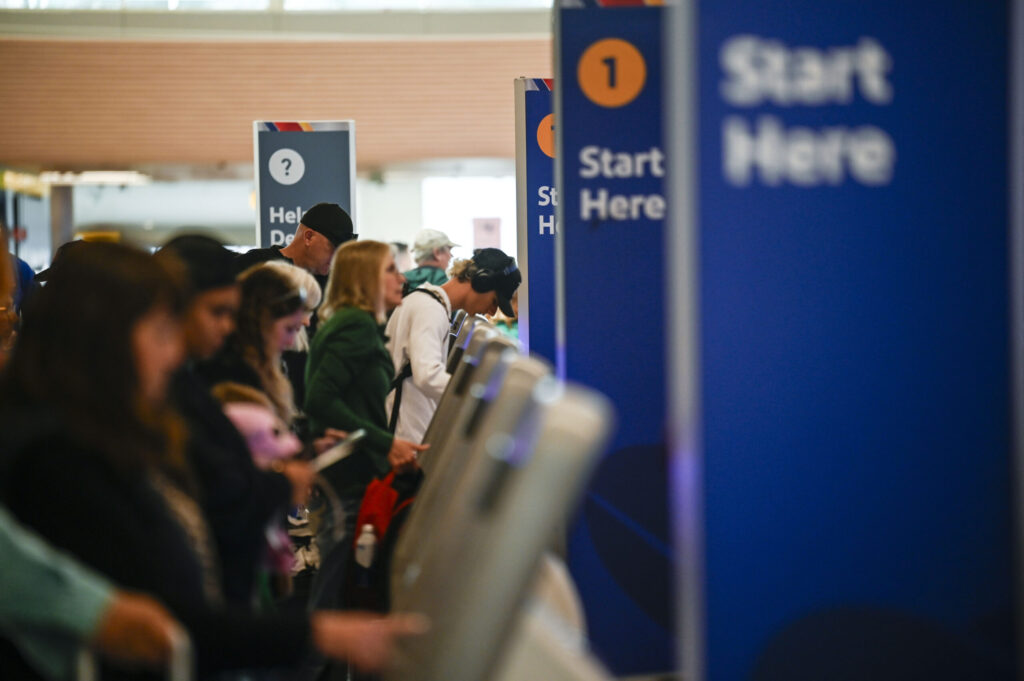Denver City Council narrowly approves banning homeless camp sweeps below 32 degrees
Denver can no longer force homeless people to move from outside living situations during freezing temperatures, the Denver City Council ruled.
The Denver City Council on Monday narrowly approved an ordinance to ban homeless encampment sweeps when temperatures fall below 32 degrees.
The seven to six vote in favor of the proposed ordinance was the closest vote in six months of action by the new Denver City Council.
Mayor Mike Johnston, who disagrees with the ordinance, may veto it. If he does, the council can override the veto with a two-thirds vote.
The ordinance is intended to keep the city sweeps from disrupting homeless people while they are trying to stay warm in current shelter such as tents when temperatures can pose a threat, according to the ordinance’s primary sponsor, at-large Councilwoman Sarah Parady.
Encampment sweeps consist of moving homeless people out of a congregated area of tents as part of the city’s camping ban. Sweeps normally occur at morning sunrise and take an average of four hours, according to city officials.
Parady described moving homeless people in freezing temperatures as “inhumane” and “incredibly damaging to people who are already struggling with so much harm and social neglect,” she said during Monday’s meeting. “At the end of the day, moving someone’s tent when it’s freezing out is cruel.”
The ordinance stymies a sweep if the National Weather Service reports temperatures below 32 degrees within 48 hours of the planned sweep.
Encampment residents are normally given seven-day sweep notices.
If an encampment sweep gets delayed, another seven-day notice would be given to the encampment, according to a spokesperson from the Department of Public Safety.
Health experts provided the council research and analysis supporting the ordinance. Risks include frostbite and large hospital bills if people are forced to move during cold weather, according to a presentation made by health officials over two months ago.
The ordinance could impact Johnston’s homelessness efforts.
The mayor’s strategy is to close homeless encampments while simultaneously providing temporary housing. His new administration closed 10 encampments under that strategy and housed 1,135 homeless people in the process before 2023 ended.
The effort cost the city $45 million, and he plans to spend $50 million in 2024 to do the same.
Johnston is expected to decide whether to veto the measure or suggest changes in the coming days, according to a city spokesperson.
“Mayor Johnston’s first priority is keeping Denverites safe and healthy. We know that cold temperatures pose a serious danger to people living outdoors, and this proposal will limit the actions the city can take to keep people safe.”
Six council members voted no: Darrell Watson, Amanda Sawyer, Diana Romero Campbell, Flor Alvidrez, Chris Hinds and Kevin Flynn.
“I think we all have concerns about the detrimental impact of folks living in encampments,” Watson told The Denver Gazette. “My primary focus to reduce frostbite and reduce the impacts to communities living in encampments is to find them shelter and to move them indoors.”
Some who voted no cited difficulties the Department of Public Health & Safety would face being limited moving homeless people in freezing weather. Some said it is more inhumane to leave people outside in tents, where they are more susceptible.
The council members who approved the ordinance said it is not meant to disrupt the goal of getting people indoors or change the existing camping ban, but rather to avoid risks cold weather causes when moving people’s most valuable belongings.
“It does not allow people to continue camping in Denver,” District 1 Councilmember Amanda Sandoval said.
Supporters of the ordinance congregated outside the building before Monday’s council meeting.
The ordinance, advocates said, has been in the making for years.
“We knew that it wouldn’t pass under the previous city council,” Amy Beck, a homeless advocate, told The Denver Gazette. “That’s why we waited until this city council was seated because now it has a chance.”
“We have people that recognize how cruel and inhumane it is to sweep people in freezing temperatures,” Beck added. “I think the city can still sweep camps with the remaining days that are above freezing.”

















